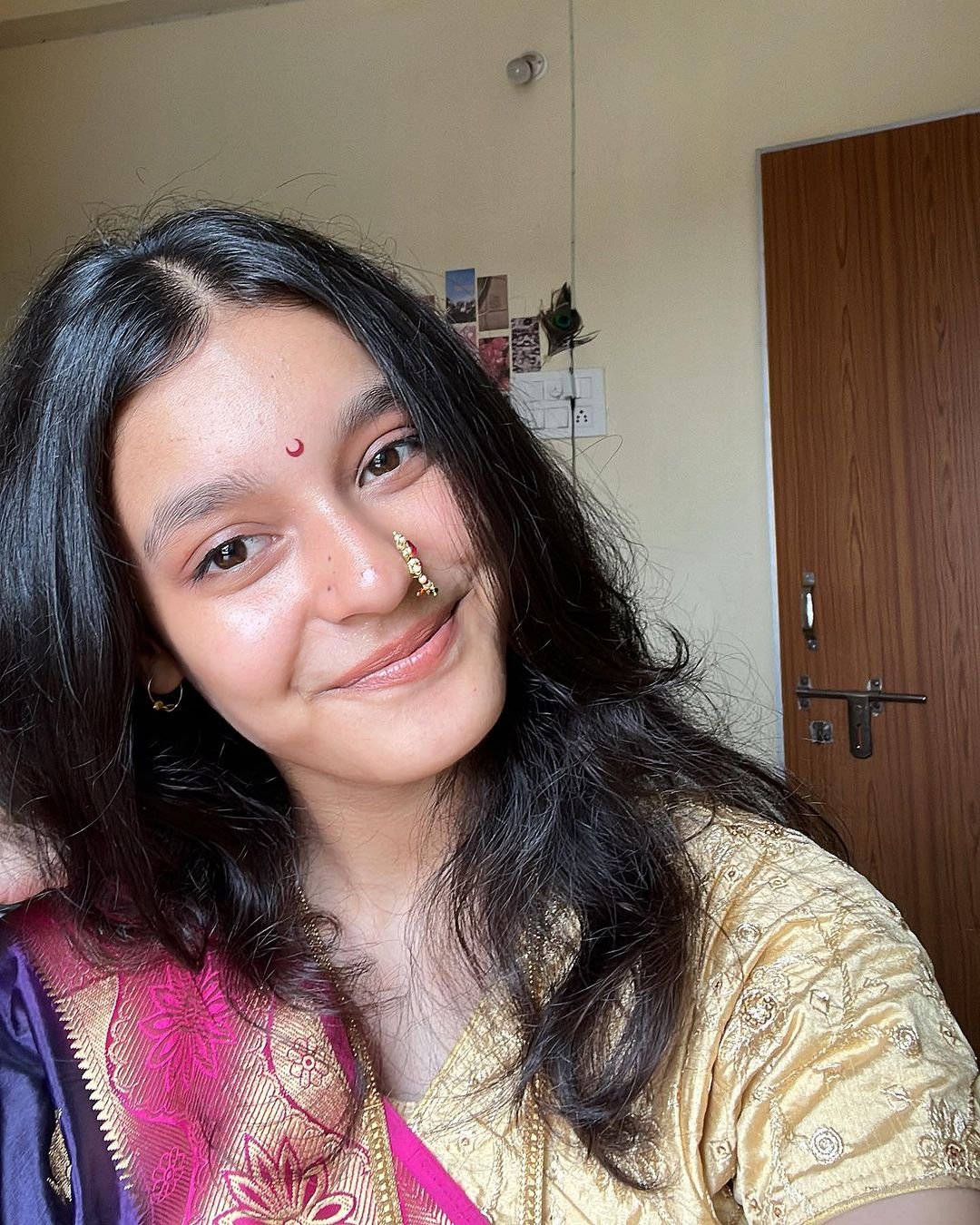🤖 AI-Generated Content
This content has been created using artificial intelligence. While we strive for accuracy, please verify important information independently.
The internet, a place of immense connection and information, sometimes becomes a focal point for very specific, often sensitive, search queries. When phrases like "subhashree sahu mms video" begin to circulate, a particular kind of curiosity tends to sprout, drawing people to look for more. It's a rather common thing, this quick search for details about something that seems to have captured public notice, especially when it involves someone's name.
This immediate pull to find out more about a topic like a "subhashree sahu mms video" speaks a lot about how we interact with information these days. People are, you know, just looking to understand what's happening, or perhaps what others are talking about. It's a very human reaction, this desire to be in the know, or to check if something heard through the grapevine holds any truth. There's a sort of collective impulse that guides these online explorations, too it's almost a natural flow.
Yet, behind every search term, especially those that hint at private matters, there's a bigger story. It's not just about the immediate search results; it's about the implications, the ripples that spread out from such a public focus. We're talking about the way information, or sometimes misinformation, can spread very quickly, and what that means for individuals caught in the glare. It's a situation that calls for a bit of thought, perhaps a moment to pause before reacting to what's found.
- Nova Patra Video
- Kalogera Sisters House Location
- Hd In 2025
- Xxx Anjali Arora Viral Video
- Valentina Victoria
Table of Contents
- Biography of a Search Term: Subhashree Sahu
- Why Do These Searches Happen?
- The Impact of Online Rumors and the Subhashree Sahu MMS Video Query
- How Can We Approach Sensitive Online Content Like the Subhashree Sahu MMS Video?
- Digital Footprints and the Subhashree Sahu MMS Video Discussion
- What Are the Broader Consequences of Unverified Information?
- Supporting a Healthy Online Space
- Thinking Critically About Online Information
Biography of a Search Term: Subhashree Sahu
When a name becomes linked with a specific online search query, like "Subhashree Sahu MMS video," it creates a kind of public profile, even if the details behind it are hazy. For many individuals, their presence in such search results is not something they chose or created. It simply appears, sometimes without any verified information attached to it. The "biography" here isn't about a person's life story in the usual sense, but rather about how a name gets associated with certain online activity. It's about the way a search term itself starts to take on a kind of existence, independent of the real person, if there even is one directly connected to the unverified claims. This can be, you know, pretty unsettling for anyone involved, or even for those who just share a name.
The truth is, when a search phrase like "subhashree sahu mms video" gains traction, the actual facts often remain quite scarce. Information, in these cases, tends to be unconfirmed, or sometimes, just plain wrong. It’s a very difficult situation because the internet doesn't always distinguish between what's real and what's just rumor. This makes it hard for anyone looking for solid information, and it's certainly a tough spot for anyone whose name is suddenly linked to something so personal and unverified. It's almost as if the search itself creates a narrative, regardless of the actual situation.
Personal Details and Bio Data of a Search Query
Since the search term "Subhashree Sahu MMS video" refers to an unverified online phenomenon rather than a confirmed public event with established facts, providing traditional personal details is not possible without fabricating information. The table below reflects the nature of information available when such queries arise – often, a significant lack of verified data.
- Michelle Obama Transsexual
- Yemada Onlyfans
- Is Lauren Daigle Married
- Yailin La Más Viral Erome
- Wasmo Somali Channel
| Detail Category | Information Status Related to "Subhashree Sahu MMS Video" |
|---|---|
| Name Associated with Query | Subhashree Sahu |
| Verification of Incident | Unverified; no confirmed public record or official statement |
| Date of Incident (Alleged) | Not publicly established or confirmed |
| Location of Incident (Alleged) | Not publicly established or confirmed |
| Public Statement from Individual | None publicly available or confirmed |
| Source of Allegations | Unconfirmed online sources, often social media or unverified websites |
| Legal Status | No public record of legal proceedings related to these specific allegations |
This table, in a way, highlights the very nature of these kinds of online searches. It shows that while a name might circulate, the actual, concrete details often remain missing. It's a pretty stark reminder that what appears online isn't always fully formed or truthful. This is, you know, a very important point to remember when encountering such content.
Why Do These Searches Happen?
It's a fair question to ask why certain search terms, particularly those hinting at private or sensational content, gain so much traction. Part of it, you could say, is just plain human curiosity. People are naturally drawn to stories that seem to offer a glimpse into something out of the ordinary, or something that feels a bit forbidden. When a phrase like "subhashree sahu mms video" pops up, it creates an immediate sense of intrigue, leading many to click and look for more. This isn't necessarily about ill intent; sometimes, it's just a quick reaction to something that seems to be a talking point.
Another reason these searches pick up speed is the way information moves online. Social media platforms and messaging apps can spread a rumor or a search term very, very quickly, almost like wildfire. One person shares it, then another, and soon enough, a whole lot of people are seeing the same thing. This creates a kind of echo chamber where the sheer volume of mentions makes the topic seem more significant than it might actually be. It's a powerful effect, and it really shows how connected, and sometimes how easily influenced, we can be online. You know, it's a bit like a chain reaction.
Then there's the element of unverified information. In the absence of clear, official statements, people tend to fill in the gaps with what they find, even if it's from unreliable sources. This can lead to a cycle where the search itself generates more unconfirmed content, which then fuels more searches. It's a tricky loop to break, and it often means that the real story, or lack thereof, gets buried under layers of speculation. So, in some respects, the search activity itself contributes to the persistence of the query.
The Impact of Online Rumors and the Subhashree Sahu MMS Video Query
The ripple effect of online rumors can be quite significant, especially when a person's name is involved, as with the "subhashree sahu mms video" query. For the individual whose name is linked to such unverified content, the consequences can be deeply personal. It can lead to feelings of distress, embarrassment, or even a sense of invasion. Their reputation, both online and in their daily life, might be affected, and it's a very difficult thing to manage when information spreads so widely and quickly. People might, you know, form opinions based on very little actual fact.
Beyond the personal toll, these kinds of online discussions can also shape public perception in broader ways. When a search term like this becomes popular, it contributes to a culture where unverified claims can gain credibility simply through repetition. This makes it harder for everyone to tell what's true and what's not, which is a bit of a challenge for a healthy online environment. It’s about the way we collectively process information, and how easily we might, perhaps, accept things at face value without really checking them out. That's a pretty big deal.
The very existence of such queries also highlights the power of the internet to create a lasting digital footprint. Once something, even a rumor, is online, it can be incredibly hard to remove it completely. It might pop up again and again, causing ongoing issues for those involved. This persistence means that the impact of a fleeting online rumor can, in a way, stretch out over a very long time, affecting lives long after the initial buzz has faded. So, it's not just a momentary thing; it has a longer tail.
How Can We Approach Sensitive Online Content Like the Subhashree Sahu MMS Video?
When faced with sensitive online content, such as a search query like "subhashree sahu mms video," it's helpful to pause and consider a few things. One key approach is to question the source of the information. Is it coming from a reputable news outlet, or is it just circulating on social media without any clear origin? Taking a moment to think about where the information comes from can really help in deciding how much weight to give it. It's a simple step, but it can make a very big difference in how we understand what we see.
Another important step is to avoid sharing or spreading unverified content. Even if something seems interesting or shocking, passing it along without checking its accuracy can contribute to the problem. Every share, every re-post, can give more life to a rumor, potentially causing more harm to individuals involved. It’s a bit like throwing fuel on a fire, even if you don't mean any harm. So, it’s really about being thoughtful about our own actions online, and how they might affect others. That, is that, a pretty responsible way to act.
Finally, cultivating a sense of empathy is crucial. Behind every search term, there might be a real person whose privacy and well-being are at stake. Considering the human impact of online content, especially sensitive or unverified material, can guide our actions and reactions. It's about remembering that the internet connects real people, and that our digital interactions have real-world consequences. This kind of consideration can, you know, help make the online space a bit kinder and safer for everyone.
Digital Footprints and the Subhashree Sahu MMS Video Discussion
Every time we interact with the internet, we leave behind a digital footprint. This includes what we search for, what we click on, and what we share. When a query like "subhashree sahu mms video" becomes part of this footprint, it reflects a collective interest in a particular topic, but it also contributes to its continued visibility. This footprint is, in a way, a record of our online activities, and it can persist for a very long time, sometimes even indefinitely. It's a quiet reminder that our actions online have lasting effects, not just for ourselves, but for the information itself.
The nature of this digital footprint means that once something is online, it's incredibly hard to fully erase. Even if original sources are removed, copies or references might still exist elsewhere. This is particularly relevant for sensitive content, where the challenge of "right to be forgotten" often clashes with the internet's persistent memory. It’s a pretty complex issue, trying to manage what stays and what goes in the vastness of the web. So, in some respects, the internet never really forgets, which can be a bit concerning.
Understanding this persistence is important for everyone who uses the internet. It encourages us to be more thoughtful about the information we consume and create. For those whose names become associated with unverified or sensitive content, the digital footprint can feel like a constant shadow. It's a powerful testament to the internet's reach, and it really underscores the need for careful consideration of what we contribute to the online world. We, you know, have a part to play in shaping this digital landscape.
What Are the Broader Consequences of Unverified Information?
The spread of unverified information, whether it's about a "subhashree sahu mms video" or any other topic, has consequences that stretch far beyond individual cases. One major issue is the erosion of trust. When people are constantly exposed to information that turns out to be false or misleading, they start to lose faith in the reliability of online sources, and sometimes, even in traditional news. This makes it harder for everyone to distinguish between fact and fiction, which is a very real problem for an informed society. It's a bit like living in a hall of mirrors, where it's hard to tell what's real.
Another consequence is the potential for real-world harm. False information can incite panic, spread prejudice, or even lead to direct actions against individuals or groups. While a search query might seem harmless on the surface, the underlying unverified claims can contribute to a climate where harmful narratives take root. This is why it's so important to think critically about what we encounter online, and to consider the potential for harm before accepting or sharing something. It's, you know, a pretty serious responsibility that comes with being online.
Furthermore, the constant need to debunk or clarify unverified information can drain resources and attention from more important issues. Organizations, journalists, and even everyday users spend time and effort trying to correct the record, time that could be spent on other productive activities. It creates a kind of background noise that can make it difficult to focus on what truly matters. So, in a way, the spread of unverified content takes a toll on our collective ability to engage with important topics effectively. That, is that, a pretty significant cost.
Supporting a Healthy Online Space
Creating and maintaining a healthy online space is a shared responsibility, and it involves more than just avoiding harmful content. It means actively promoting accurate information and thoughtful interactions. When we encounter something like a search for "subhashree sahu mms video," instead of just looking for the content, we can think about the broader context and the impact on privacy. It's about being a bit more intentional with our online presence, choosing to contribute positively rather than just consuming passively. We, you know, have the power to shape the internet's character.
Part of supporting a healthy online space involves being a good digital citizen. This means respecting privacy, even when it comes to publicly circulating rumors. It also means being kind and empathetic in our online interactions, remembering that there are real people behind the screens. This approach helps to build a more respectful and trustworthy online community, which benefits everyone. It’s a very practical way to make the internet a better place, one interaction at a time. So, it's not just about what we avoid, but what we actively do.
Platforms also have a role to play in this, of course. They can work to develop tools and policies that help to curb the spread of unverified content and protect individual privacy. But ultimately, the power lies with each user to make conscious choices about what they engage with and how. It's about fostering an environment where critical thinking is valued, and where the well-being of individuals is prioritized over sensationalism. This is, you know, a collaborative effort that requires ongoing attention.
Thinking Critically About Online Information
In a world where information, and sometimes misinformation, spreads so quickly, thinking critically about what we see online is a pretty important skill. When a search term like "subhashree sahu mms video" appears, it's an opportunity to practice this skill. Instead of accepting what's immediately presented, we can ask questions: Who posted this? What's their agenda? Is there any evidence to back this up? These questions help us to move beyond simply reacting to content and to truly evaluate its worth. It’s a bit like being a detective for your own information consumption.
Critical thinking also involves recognizing emotional triggers. Sensational or scandalous headlines are often designed to provoke a strong reaction, encouraging clicks and shares without much thought. Being aware of these tactics can help us to pause before reacting impulsively. It's about taking a breath and letting reason guide our next steps, rather than letting emotion take over. This kind of self-awareness is, you know, a very valuable tool in the online world.
Finally, seeking out diverse perspectives and verified sources can strengthen our ability to think critically. Relying on a single source or a narrow viewpoint can lead to a skewed understanding of events. By looking at information from different angles and consulting reputable sources, we can build a more complete and accurate picture. This practice helps to counteract the echo chambers that can form online, and it ultimately leads to a more informed personal perspective. So, it's about building a robust understanding, rather than just a quick one.
Additional Resources
Visual Content



Disclaimer: This content was generated using AI technology. While every effort has been made to ensure accuracy, we recommend consulting multiple sources for critical decisions or research purposes.
